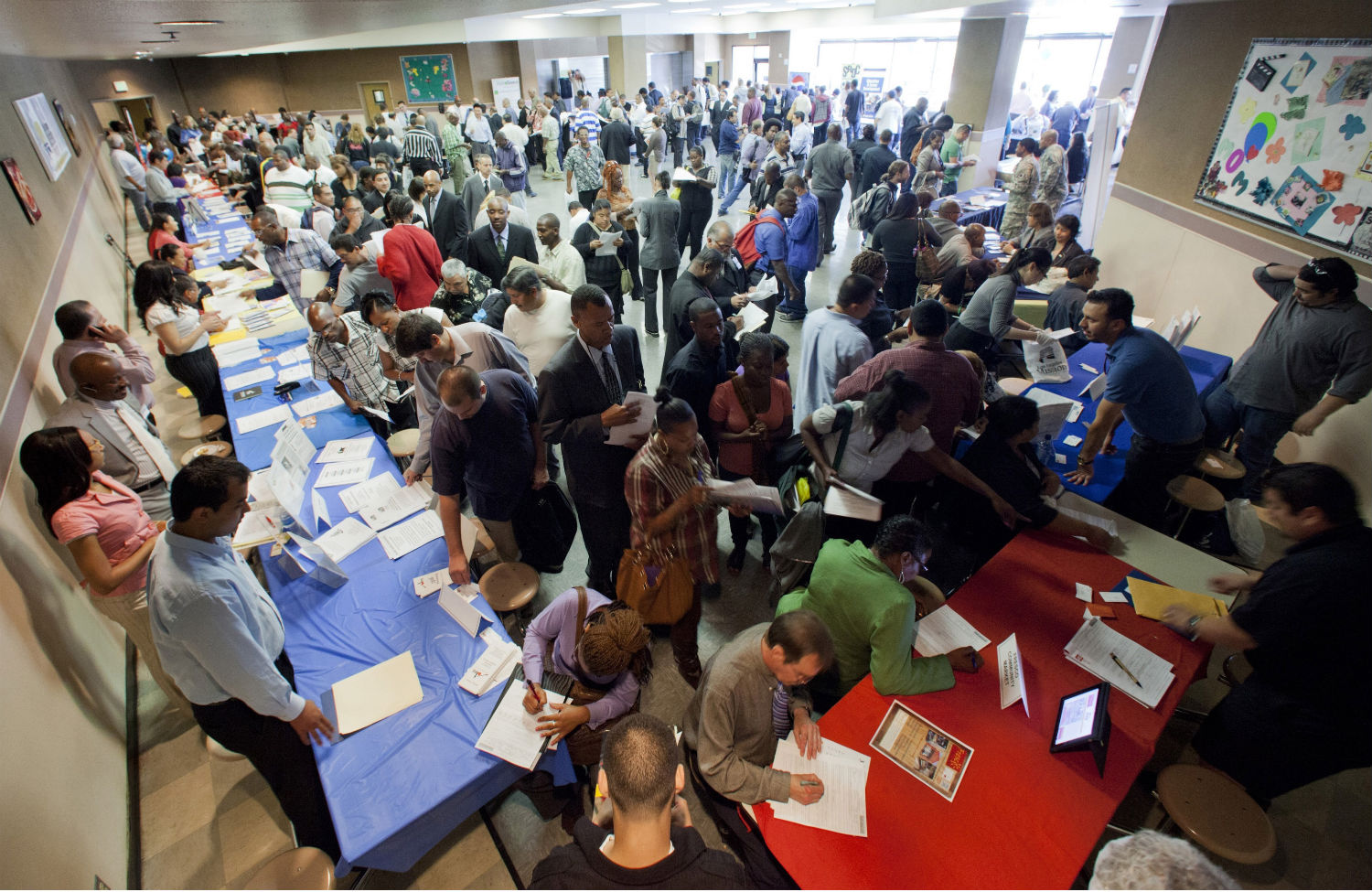
A Real Sharing Economy A Real Sharing Economy
One of the overlooked problems driving our country’s jobs crisis isn’t unemployment—it’s just not having enough work. The shadow figure that lurks behind the unemployment rate is underemployment: people who want—and need—full-time work but are only able to find part-time hours, or who have gotten “discouraged” from job-seeking. Including those people, the broad measure of underemployment hovers around 12 percent. These days, people struggle full-time to juggle multiple part-time jobs, even as they suffer from the loss of healthcare and other social protections. They are overworked and underemployed. But it’s not that the underemployed simply want to work more; they also want to earn more. One way to square the lack of work with the need for income is work-sharing, which allows companies to distribute hours so that people work less, while ensuring that there’s still enough work to go around to prevent layoffs. For example, as explained in a new study by the National Employment Law Project, if a factory wants to cut its workforce by the equivalent of five employees, “Under work-sharing, the employer could instead reduce the hours of 25 employees by 20 percent, and those workers would receive a pro-rated [unemployment insurance] payment for their one day per week of unemployment, while maintaining any existing health and retirement benefits.” Cutting back hours typically harms workers, but what makes work-share less painful is that the government subsidizes the balance. About half of the fifty states have implemented some form of work-sharing, but now state lawmakers are approaching a year-end federal deadline to apply for funds. A bill to renew the legislation, the Layoff Prevention Act, is pending. Please support our journalism. Get a digital subscription for just $9.50! The central premise of work-sharing is that the state has a responsibility to support the restructuring of labor to protect workers. This is not a new idea: work-sharing is more widespread in European countries, particularly Belgium, Germany and Italy—and California introduced a statewide work-sharing program in the late 1970s. In the wake of the Great Recession, Washington passed legislation allowing states to use federally approved work-share programs to cope with epidemic levels of long-term joblessness. Politicians try to spin the economic crisis by talking about the need for “shared sacrifice”—code for coddling big business at the expense of workers. Now that Washington is offering a small way to redistribute workers’ time without sacrificing all their income, states have a chance to really put their money where their mouth is. Read Next: Peter Van Buren on the new minimum-wage economy
Oct 22, 2014 / Michelle Chen
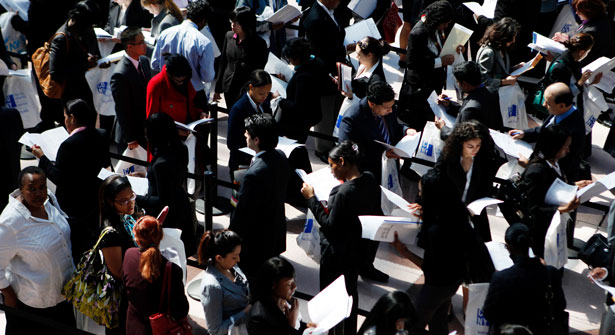
Work-Sharing: A Socialist Alternative to Layoffs? Work-Sharing: A Socialist Alternative to Layoffs?
Both unemployment and underemployment could be alleviated through a little-known federal subsidy program.
Oct 20, 2014 / Michelle Chen
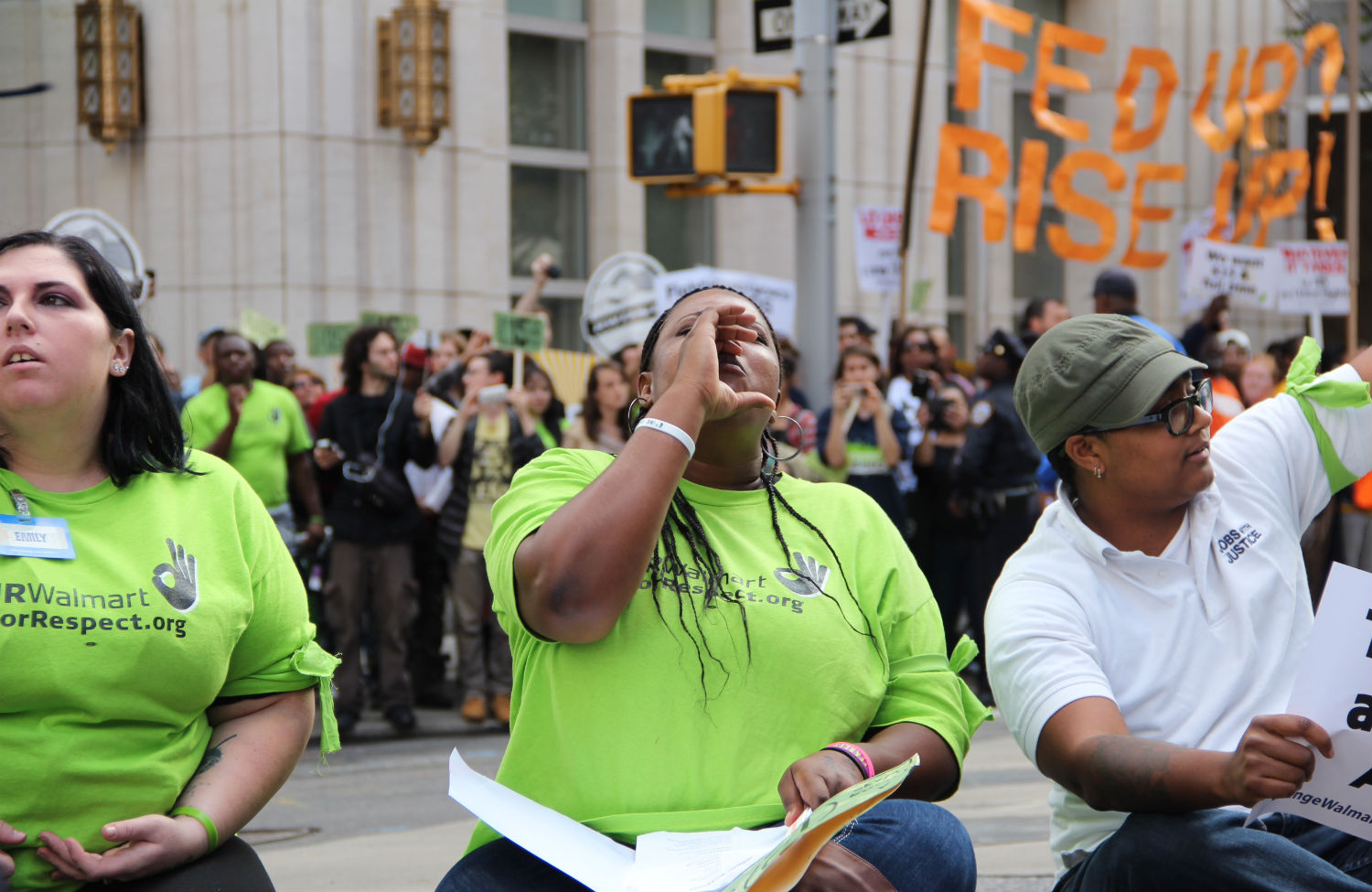
Workers Bring $15 Hourly Wage Challenge to Walmart Workers Bring $15 Hourly Wage Challenge to Walmart
In protests around the country on Thursday, Walmart workers presented a simple demand: full-time work at $15 an hour.
Oct 17, 2014 / Michelle Chen

When the Workday Never Really Ends When the Workday Never Really Ends
Flexible scheduling is creating an on-call nightmare for working people.
Oct 15, 2014 / Michelle Chen
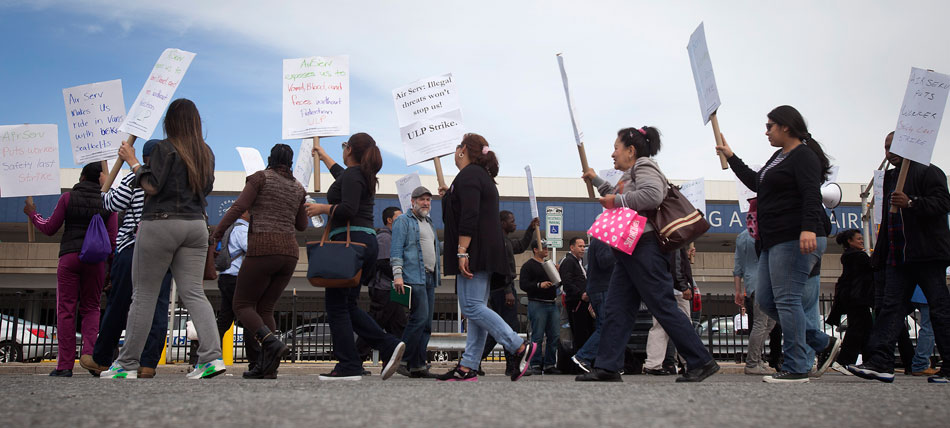
If Airport Ebola Screening Makes You Feel Safer, You Should Know What Workers Are Saying If Airport Ebola Screening Makes You Feel Safer, You Should Know What Workers Are Saying
Some airport workers have not been trained on handling exposures which could put them at risk of Ebola, hepatitis B and HIV infection.
Oct 12, 2014 / Michelle Chen
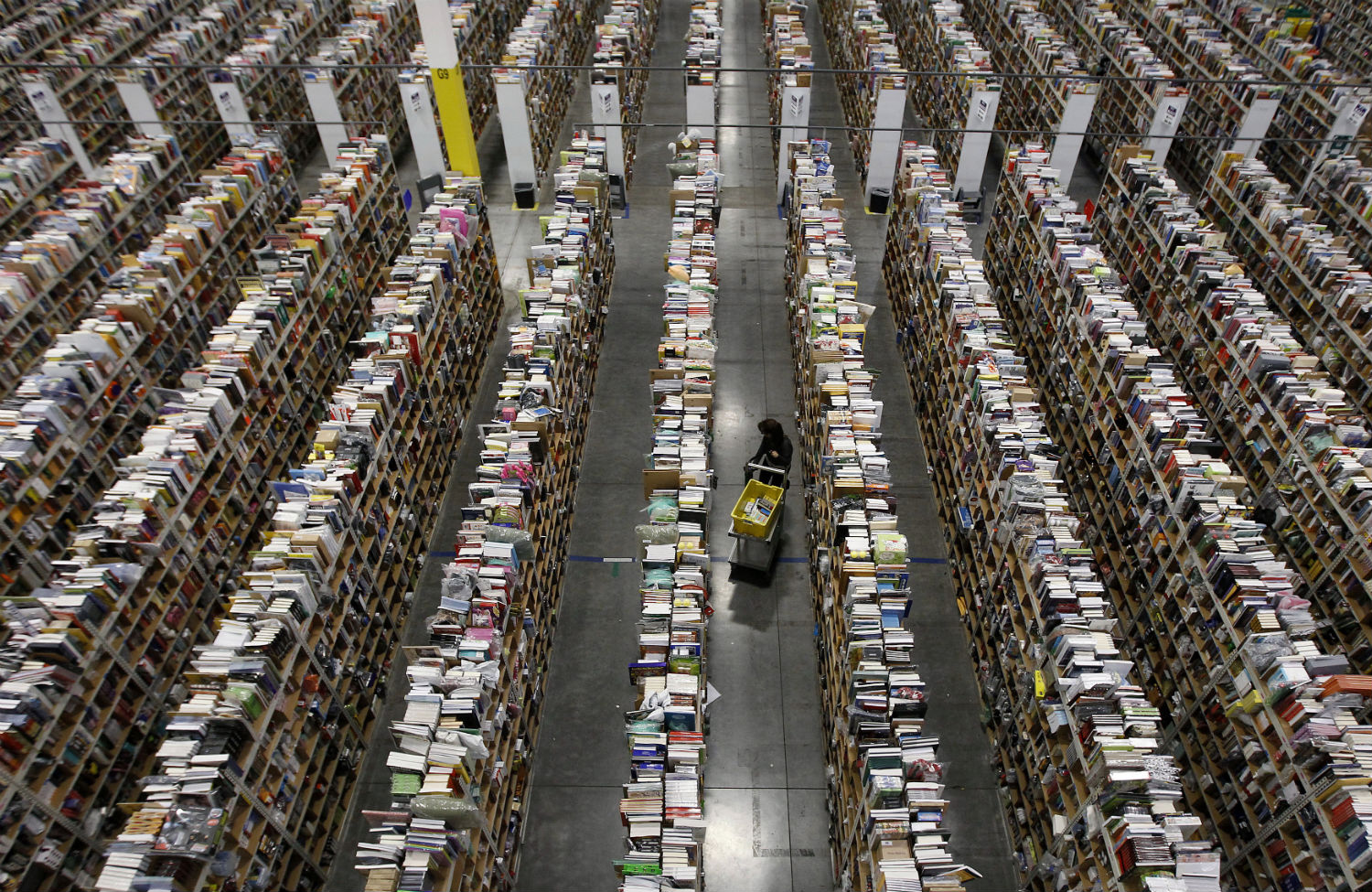
Supreme Court Case Shows How Amazon Legally Cheats Workers Supreme Court Case Shows How Amazon Legally Cheats Workers
Amazon’s relentless cost-cutting hits workers hardest.
Oct 10, 2014 / Michelle Chen
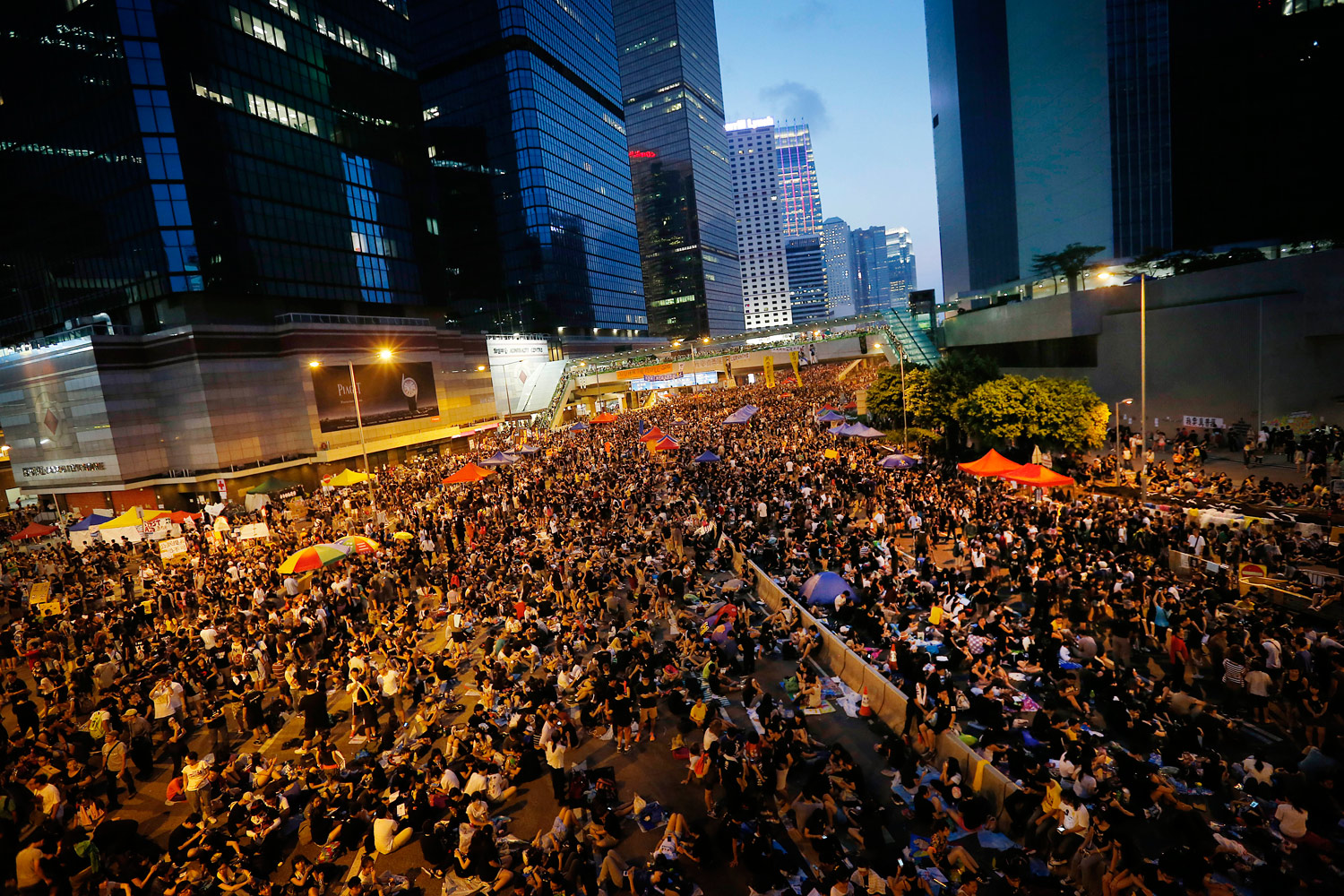
Fighting Hong Kong’s Inequality Crisis Fighting Hong Kong’s Inequality Crisis
Though the territory’s street protests have largely died down, the pro-democracy movement proved it was in for the long haul.
Oct 8, 2014 / Michelle Chen

‘Welfare-to-Work’ Has Failed, So New York City Is Trying Something New ‘Welfare-to-Work’ Has Failed, So New York City Is Trying Something New
Human Resources Administration announces changes to a system long critiqued by advocates.
Oct 8, 2014 / Michelle Chen
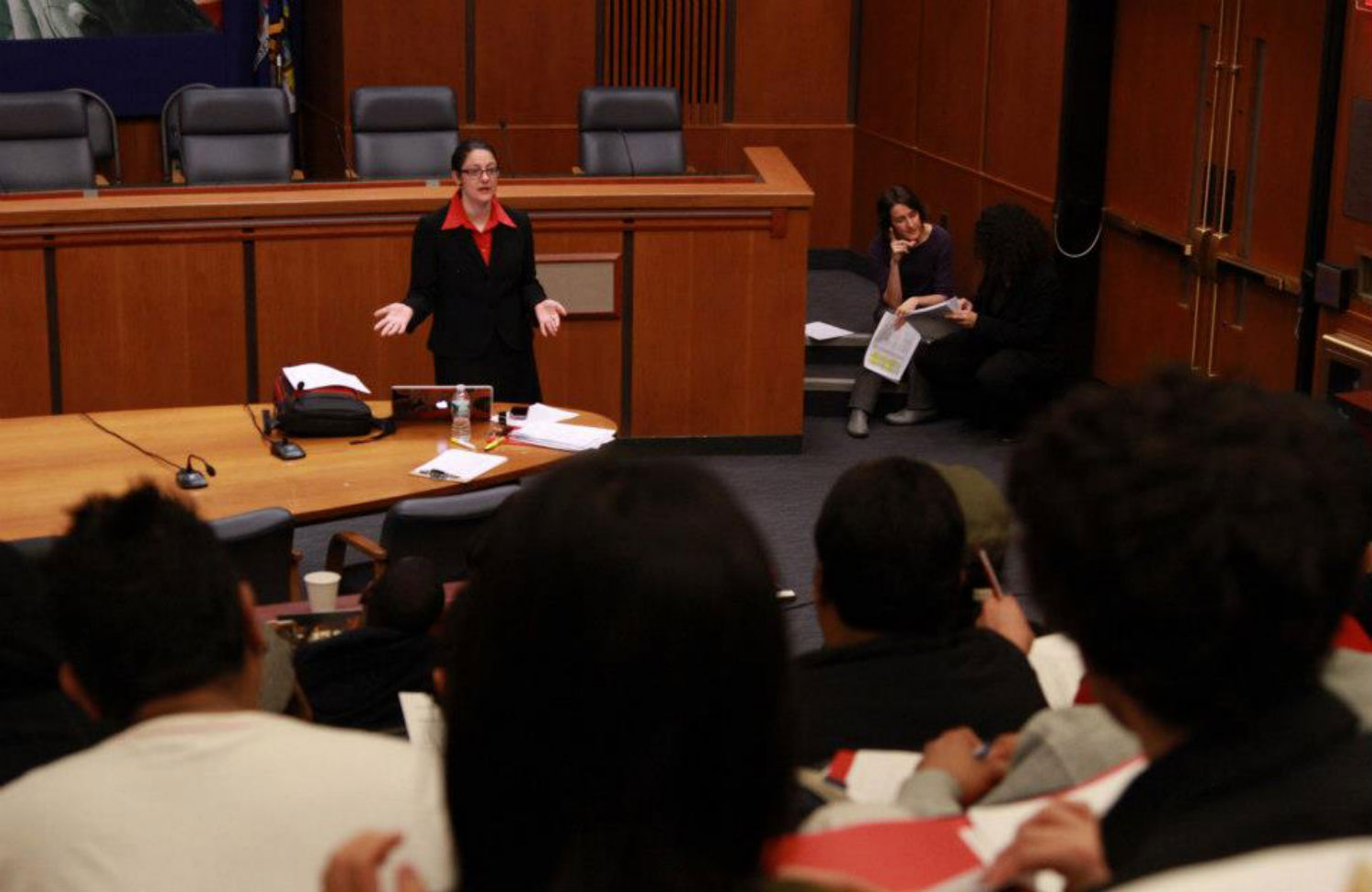
Are New York’s Sex Workers Getting Their Fair Day in Court? Are New York’s Sex Workers Getting Their Fair Day in Court?
The courts want to offer sex workers “compassion”—but maybe agency would be more useful.
Oct 6, 2014 / Michelle Chen

At Least 2,500 Migrants Have Died Trying to Reach Europe This Year At Least 2,500 Migrants Have Died Trying to Reach Europe This Year
In the face of Europe's reinforced borders and continued neglect, thousands of refugees are drowning at sea.
Oct 3, 2014 / Michelle Chen

